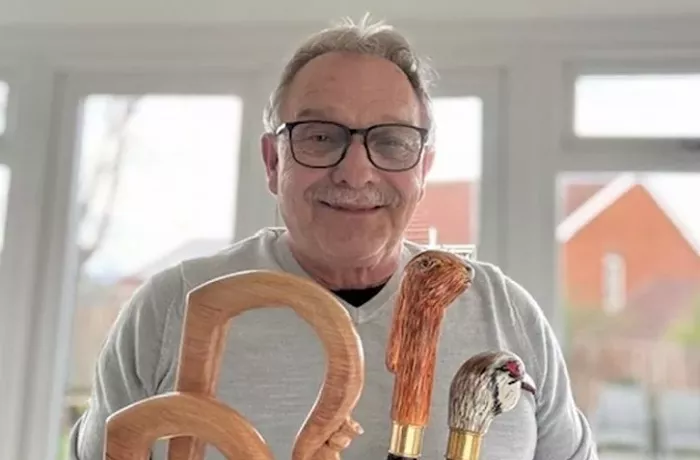A 71-year-old man from Durham is back to his passion of carving wooden animals, thanks to a cataract surgery made smoother by artificial intelligence.
Len Browne, an amateur woodcarver, had been forced to give up his hobby as his eyesight declined. He creates everything from small birds to Victorian-style rocking horses, but worsening vision made it too dangerous to continue using sharp tools.
“I upgraded my glasses, but my vision still wasn’t right,” Len said. “Eventually, my optician found I had a cataract in my right eye.”
He was referred to Optegra Eye Hospital in Gateshead, where he received NHS-funded cataract surgery. Before the operation, Len was assessed by a virtual assistant named Iris, powered by artificial intelligence.
“I had an online appointment to provide my details,” he explained. “Halfway through, I realised I wasn’t talking to a real person—it was an AI! But it didn’t feel cold or robotic. Iris was very friendly. It was an easy and positive experience.”
Len had the surgery just two weeks after his initial consultation. He praised the Optegra team, saying: “They were fantastic. I never felt nervous or rushed. They made me feel welcomed and cared for, which is exactly what you need before eye surgery.”
After the operation, Len’s vision improved dramatically. “I can’t believe how much light I can see now. I’m back to woodcarving, which brings me real joy. Even everyday things like shopping are so much easier. I’d tell anyone thinking about surgery to go for it—it’s life-changing.”
Nicola Young, Head of AI at Optegra, said, “Healthcare is evolving, and AI offers new ways to improve the patient experience. Iris helps patients begin their treatment journey quickly and smoothly.”
Optegra provides cataract surgery both privately and through the NHS, and also treats eye conditions like macular degeneration and glaucoma.
Related topics:


